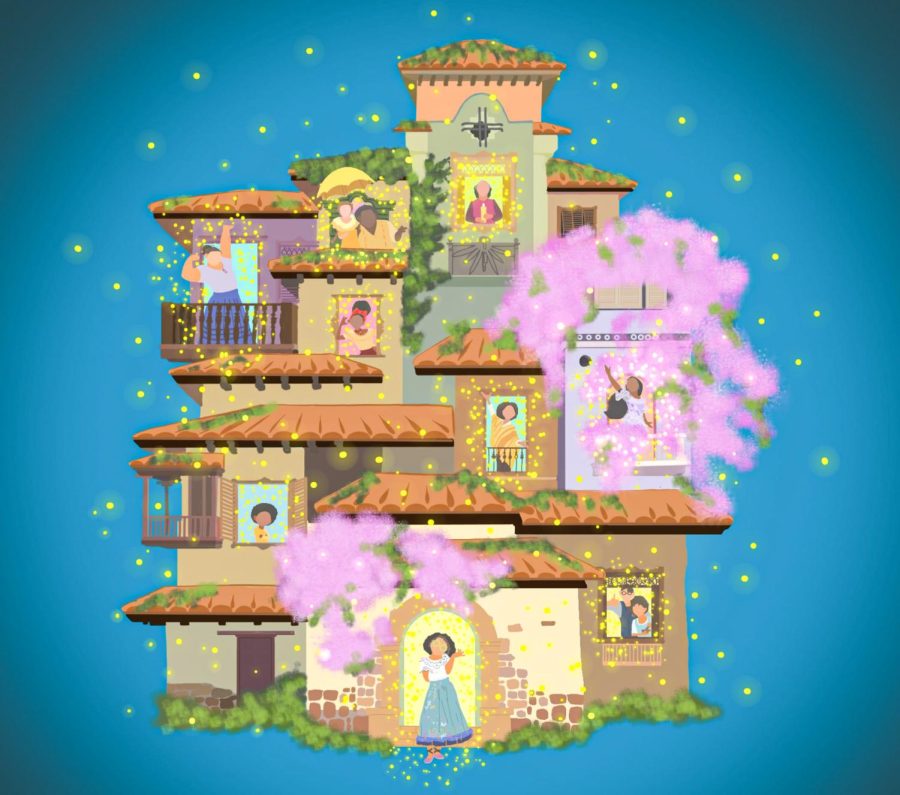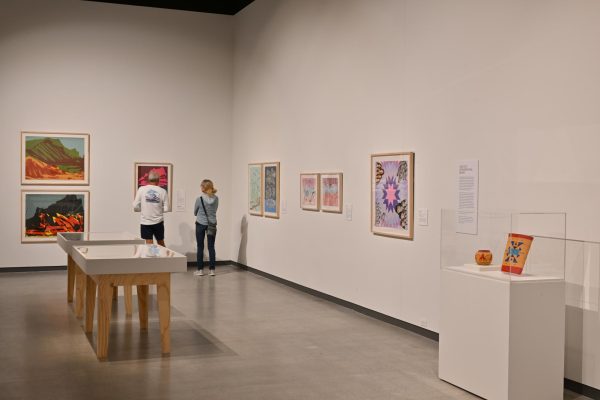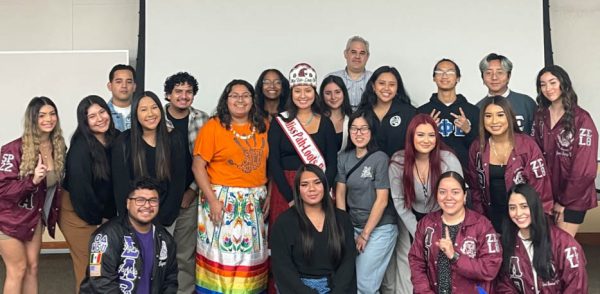Surveys in: We love ‘Encanto’
Encanto has something for all generations
Encanto touches the hearts of WSU students and many across the world.
February 10, 2022
Editor’s note: this article may contain some spoilers for people who have not watched it, read at your own discretion.
“Encanto” was in theaters for 30 days before it was released on Disney+. Since then, the animated film has broken records with its award-winning soundtrack.
Since its release in November, Lin-Manuel Miranda’s soundtrack has trended on TikTok and charted No. 1 on the Billboard Hot 100. It’s the first soundtrack to reach No. 1 since “Frozen 2” in 2019, according to the New York Times.
“‘Encanto’ does a good job of representing generational trauma in a way that kids and adults can digest the same, while still having an impactful message,” said Chicanx Latinx Student Center member Antonio Fajardo-Mora.
This animated film is chock full of impactful messages, from accepting and believing in yourself to understanding where one another is coming from.
In the last song of the movie titled “All Of You,” Abuela (grandmother) tells her family one of the most important messages of the movie.
“The miracle is not some magic that you’ve got. The miracle is you, not some gift, just you,” she said.
The main character Mirabel, voiced by Brooklyn Nine-Nine’s Stephanie Beatriz, is forced to find the mystery of what is hurting her family’s magic. Directors Jared Bush and Byron Howard take a deeper look into the family’s story and how things aren’t always what they seem.
The movie demonstrates themes of generational differences by using the soundtrack to describe the overall messages of the film. The music showcases a deeper understanding of the characters, especially “Surface Pressure” and “What Else Can I Do?”
CLSC member Yesli Peña-Rodríguez (they/them) related to “Waiting on a Miracle,” sung by Beatriz. At this moment, Mirabel is telling the universe that she is ready for her time to shine and how she could help her family if only someone gave her a chance.
“That’s a feeling a lot of people have often. I felt like that when I was coming to college, I couldn’t wait to move out and do my own thing,” they said.
The Family Madrigal uses these magical powers to help the community under Abuela’s instruction. The movie begins with a dramatic look into Mirabel’s origin story. The first song is catchy and upbeat and introduces all the family members and their roles.
But what about Mirabel? The viewers find out she was not given a gift like the rest of her family. As we see Mirabel struggling to prove herself, we find that other family members are struggling in their own ways to prove themselves.
This frustration continues to build, and Mirabel takes it upon herself to find the reason why the casita is cracking.
Unlike the song “We don’t talk about Bruno,” it’s time to talk about uncle Bruno. Mirabel finds herself learning more about her uncle, who disappeared after using his gift to see the future. The answers she uncovers redefine the whole movie and help her discover her destiny.
Every time you watch the film, characters are presented in a new light, and you have a deeper appreciation for them and the struggles they endure. Many have taken to social media to share (warning: spoilers in the link) hidden easter eggs and their thoughts.
The themes of this movie relate to all families struggling to understand each other, but leave a special impression for people of Colombian culture. The movie opened the audience’s eyes to generational differences and how people can understand one another even with these differences.
Many viewers found they related to the characters and their struggles, and the lyrics of “Surface Pressure,” sung by Jessica Darrow who plays Luisa, Mirabel’s older sister.
“Give it to your sister. It doesn’t hurt, and see if she can handle every family burden,” Luisa sang.
Peña-Rodríguez relates to upholding family expectations as the oldest child like Luisa.
“I feel like that’s what it’s like in a lot of Hispanic households,” they said. “They have so many expectations for each other.”
This movie relates to all the insecurities and self-doubt people face, not only within their families but within themselves.
In every new animation film, Disney tops its previous illustration ability with details such as reflections and texture.
“I’m just really appreciative of how much they put into the movie, culturally, musically. Just design-wise, it’s so colorful,” said Fajardo-Mora. “The movie is really impactful and dear to me.”
The movie also has symbolism embedded in every detail, foreshadowing representing renewal and transformation. For example, Mirabel has butterflies embroidered on her dress, and at the end of the movie, she and Abuela are surrounded by butterflies, reconnecting the central theme of transformation.
Towards the end of the movie, we see what happened the night the family received the candle. “Dos Oruguitas,” or two little butterflies in English, was written for this scene to represent continuing with your life after a traumatic event.
“Don’t look behind you
Fly till you find
Your way toward tomorrow,” English Translation.
For Peña-Rodríguez, the butterflies represented that “Regardless of what situation you are in, life is beautiful, and you can’t give up.”


















